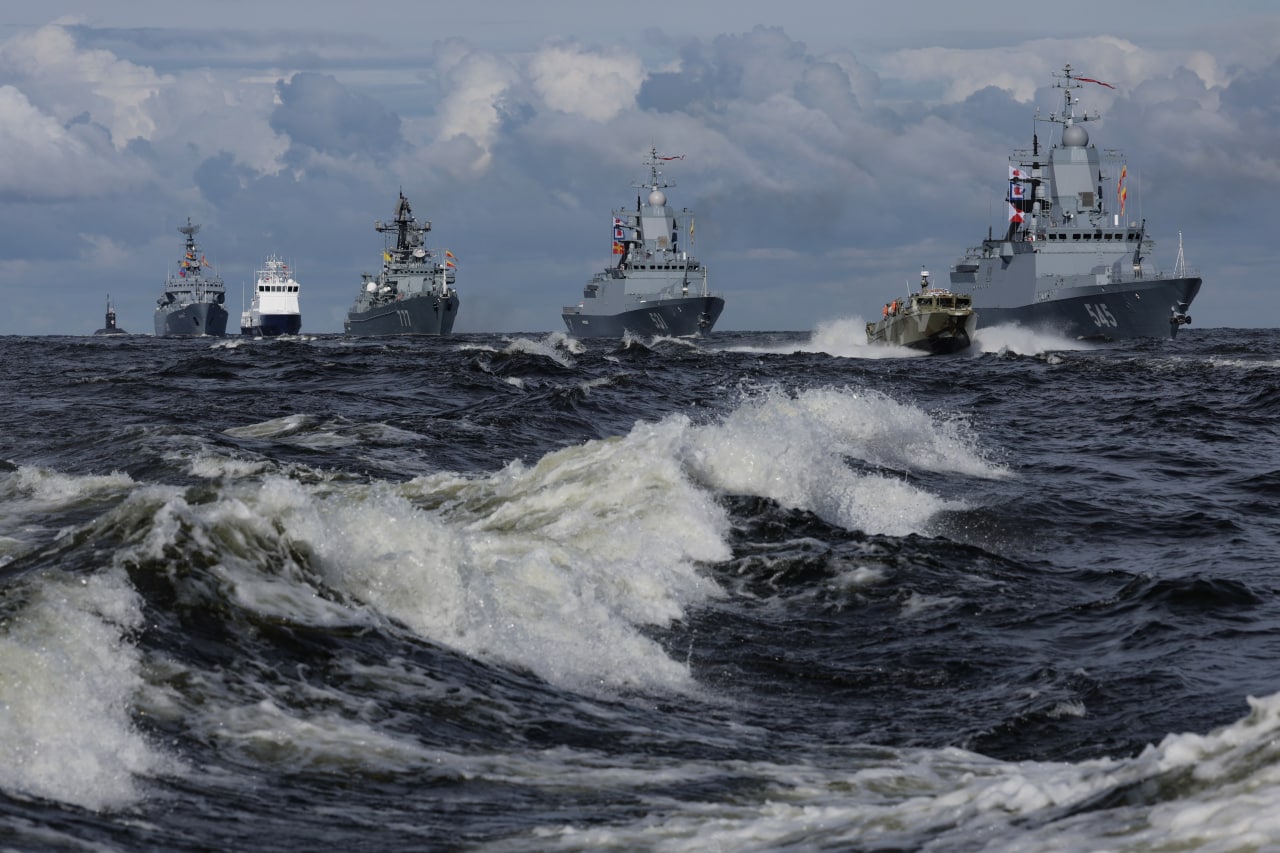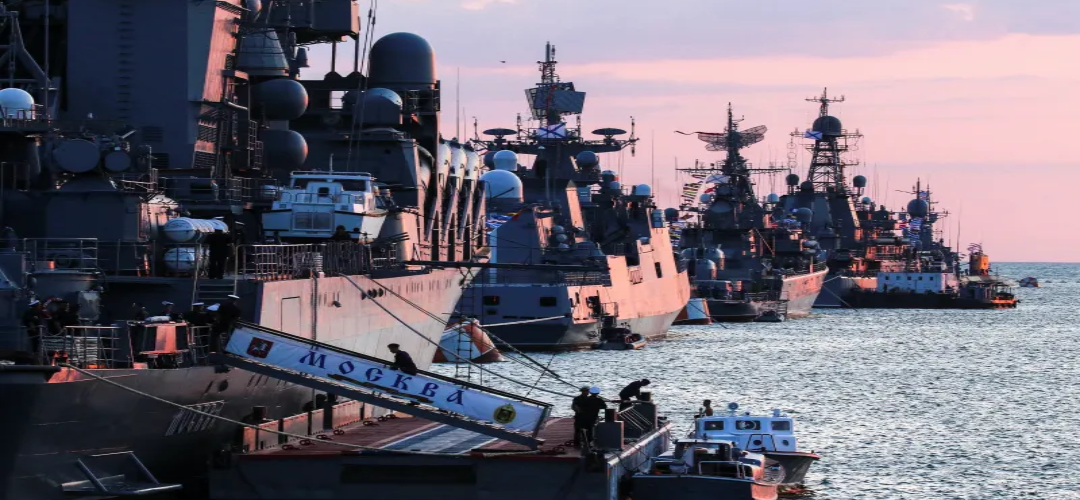Conflicting ambitions and strategic Manoeuvres in the Black Sea make this vital area a hot spot for armed confrontations.
Oceans and seas, vast spaces without borders, have become victims of geopolitical fragmentation. Conflicts rapidly spread to seas with the rise of naval power, leading to what some experts call hydro-diplomacy.
Russia’s special military operation in Ukraine and geopolitical revisionism in the Black Sea region as a counter to NATO initiatives on its littorals have caused a fresh and deadly contest for hegemonic dominance between the two European rivals. Russia has historically indulged in its power projection into the Western Balkans, South Caucasus, Eastern Mediterranean, and parts of the Middle East. With the changing dynamics in Europe, after it went kinetic in Ukraine and gave NATO a ready pretext to expand, key players in the region are jockeying for an advantageous position, with Europe’s security on the line. Where traditionally Turkey and Russia had primacy, the Black Sea is witnessing renewed instability thanks to the divided and contested regional order. A beleaguered and surrounded Russia is apprehensive that its traditional control over the Georgian coastline, Crimea and Transnistria, and the overtly pro-Russian areas of Moldova is being jeopardised.
Background
The Black Sea is a geopolitical swimming pool, with coastal countries pulling their power strokes. Its geo-strategic importance cannot be emphasised, from its maritime MVP to its maritime linkage to Europe and the Middle East. The bustling trade and key ports along the Bosporus Strait house the world’s busiest energy highway.
The region boasts of its military and strategic positioning, making it ideal for naval power projection. It allows nation-states to project special naval operations, enhancing their defence importance. Countries like Turkey, Georgia, Ukraine, Russia, and Romania have naval bases and constantly compete for regional security. The Sea’s location enables rapid deployment of naval forces, influencing the different security dynamics in Europe, the Middle East, and Asia. Recent conflicts clearly reflect the Black Sea as a critical area for naval and regional importance.
However, the ambition to control the Sea has encouraged the presence of extra-regional actors, including NATO and the U.S. Navy, consequent to invitations from littoral countries. NATO’s expansion and belligerent makeover have further complicated the situation.
Since the 18th Century, Turkey’s geography has given it uncontested domination over the Black Sea approaches, reflected in its foreign policy outreaches. Turkey’s foreign policy indicates its intention to deepen cooperation with regional Black Sea NATO allies, overtly ensuring the safety of shipping vessels and preventing a Russian blockade of goods and trade. However, Ankara is also not above cosying up to the Russians when it suits its national interests and works out side deals, keeping its NATO allies on edge.

Analysis
Significant geopolitical fragmentation of the region has been witnessed in the past years, with the security environment reflecting the Russian revisionism caused by post-society insecurity and instability. Despite recognising the importance of the Black Sea, the Western powers are finding it difficult to match Russian maritime influence in the region. This contest for a growing territorial sphere of influence has enhanced regional instability. The fight for dominating energy and trade routes has become a common reality for the militaries. Diplomacy between regional nation-states has consequentially influenced the rise of middle powers that balance hegemonic uprisings. However, there has been a steady decline in multilateralism, hampering security arrangements and economic development. The Black Sea is also exposed to hybrid and conventional warfare, changing the nature of naval warfare.
Russia seeks to regain its Black Sea advantage by gaining control over Ukraine, aiming to cut it off from the coast, secure land connections with Crimea, and establish control over Odesa. The West could consider strengthening Ukraine’s influence and military presence to combat Russian aggression. Ukraine has previously been successful in naval operations against Russia after initiating an unconventional crowdfunding campaign to acquire 100 maritime drones. “Protecting our waters is paramount”, Zelensky stated. Russia is delving into techniques and methods to keep NATO out of the Black Sea by modernising and strengthening its vessels.
The Black Sea remains Europe’s strategic hub for energy traffic. With the growing intensity of the Russian-Ukraine conflict, Europe’s growing military significance is visible, with or without American military participation. The region contains major gas pipelines and shipping routes for Europe’s energy and economic security. Changes have mushroomed in Europe since the invasion, such as reducing reliance on Russian gas for energy and looking towards a more diversified option. In this high-stakes game, a clear prioritisation of the Black Sea has been created. Nations combating Russian hegemony will need a strong strategy for protection and deterrence in the maritime domain of the Black Sea.
One reason Russia wants to cut Ukraine down to size is the influence that Kyiv can bring into the equation. Significant changes following the Russian invasion have created challenging waves in the Sea with very little media coverage. Ukraine’s asymmetric campaign against the Russian navy has eliminated one-third of the Russian Black Sea fleet, making it a crucial regional player in containing Russian expansionism. Ukraine might see potential future success in the Black Sea after its push against Russia’s Crimean naval fleet. Ukraine’s advantage lies in the West’s treasure trove of arms and weapons, aiding Ukraine in shifting the balance of power. Two years ago, Russia seemed undefeated in the seas, but today, Ukraine have changed the script for Russia, leaving it insecure and unstable. Ukraine’s defence claims to have destroyed Russia’s Black Sea fleet minesweeper combined with drone attacks targeting multiple locations in Novorossiysk and Tuapse along with oil refineries.
Given Russia and Ukraine’s tug-of-war, Turkey has now sailed ahead in the Black Sea as a maritime powerhouse. Ukraine has successfully re-established a shipping corridor, a transit through Istanbul for its grain export, to compensate for its losses from the decline of the Russian grain corridor. Sea mines in the Black Sea have caused much instability for merchant shipping, resulting in Turkey, Bulgaria, and Romania signing an Agreement on a joint Mine Countermeasures Task Group.
Assessment
- Ukraine’s strikes have forced the Russian Black Sea Fleet to retreat. As Russian naval prowess wanes, Black Sea power dynamics have shifted. In the bargain, Turkey, the gatekeeper of the Sea’s naval traffic, has gained the upper hand.
- The Ukraine-Turkey defence partnership has the potential to enhance security in the Black Sea and Euro-Atlantic region This is not good news for Russia, which may continue with its efforts to seize the initiative in a maritime space that it considers its own back-yard, critical for its national power projection.
- While allowing its European allies to take the lead in this region, the U.S. has been keeping a sharp eye on the developments; it is shepherding a Black Sea Maritime Domain Awareness project, in which Bulgaria, Romania, Ukraine, and Georgia are participating. This will ensure that the U.S. can calibrate its own involvement with its considerable naval forces, making the Black Sea even more volatile.




